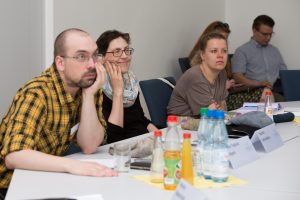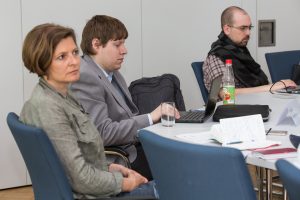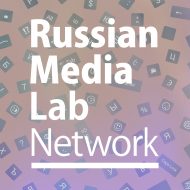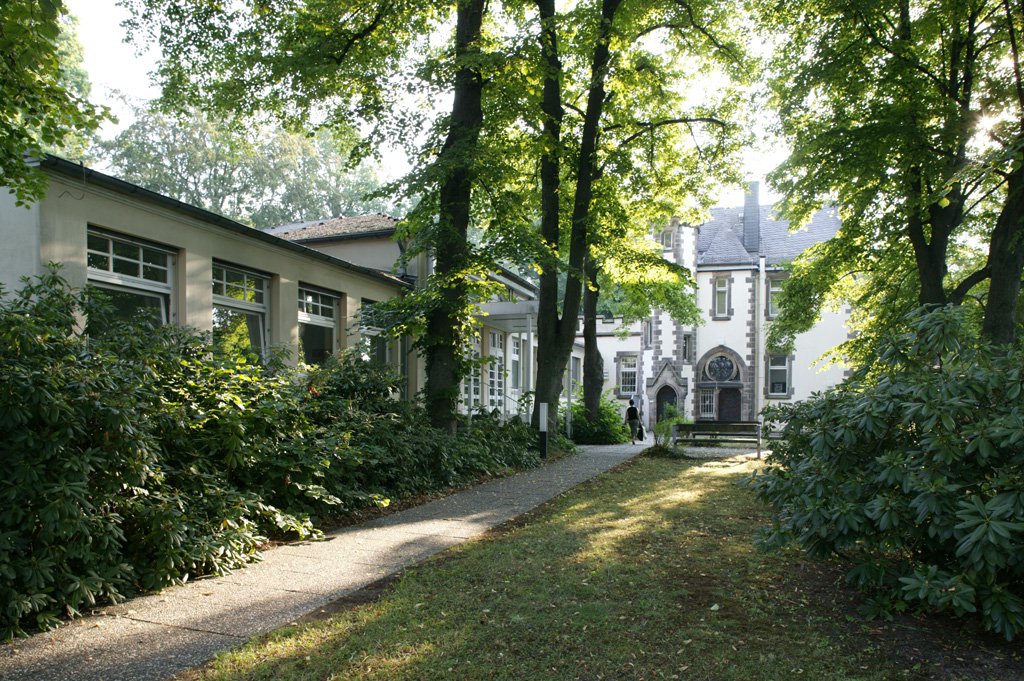Digital humanities enthusiasts met on 3-4 June at the Herder Institute in Marburg, Germany in the joint workshop “Politics of e-Heritage: Production and regulation of digital memory in Eastern Europe and Russia”. It was the second workshop in the workshop series “Politics of Digital Humanities in Eastern European Studies”, organized by the Herder Institute for Historical Research on East Central Europe, the Aleksanteri Institute – University of Helsinki and CEES at the University of Glasgow. Aleksanteri Institute hosted the first workshop in September 2018.
 The Workshop in Marburg brought together an interdisciplinary group of scholars to present their research and to discuss about the digitalization processes in production and regulation of history, heritage and memory in Eastern Europe and Russia. Multidisciplinary background of participants, working at the intersection of history, media studies, cultural studies, internet security studies and other disciplines allowed to highlight various aspects of aforementioned issues.
The Workshop in Marburg brought together an interdisciplinary group of scholars to present their research and to discuss about the digitalization processes in production and regulation of history, heritage and memory in Eastern Europe and Russia. Multidisciplinary background of participants, working at the intersection of history, media studies, cultural studies, internet security studies and other disciplines allowed to highlight various aspects of aforementioned issues.
Dr Eszter Gantner, post-doctoral researcher at the Herder Institute and co-organizer of the workshop, believes that political understanding of digital production of memory should not be excluded from scholars’ attention.
Why does politics of digital memory matter?
In the last decade, there has been increasing interest in digital technologies and their influence on the production of memory, history and heritage not only within academic research, but also in politics, especially in Eastern Europe and Russia. The tendency toward selective history, heritage and memory politics in the region manifests itself more and more in the digital sphere. Politicians decide on what will be remembered and how. This selection process includes also the decision on what will be digitized for the future generations and how. Whose heritage will be secured by digitization and whose will not? Simultaneously, these decisions also aim to regulate the accessibility of digitized heritage. Which materials or collections will be accessible, and which will not? Moreover, the types of users are regulated through these politics.
 What kind of topics were discussed in the workshop?
What kind of topics were discussed in the workshop?
We discussed various aspects of the overall topic based on eleven case studies from Russia, Hungary, Czech Republic and Poland. Concentrating on agents, practices and strategies of selecting and producing digital heritage, we have analyzed on the one hand the top to down process in the digital heritage production and on another hand, we have discussed also the growing bottom up approach and involvement of grassroot initiatives in this field. Claiming the “right” for history and memory had been identified as one major force behind of these initiatives, especially in Russia. As the case studies focusing on the blogosphere and local urban initiatives demonstrated it clearly, digital tools allow for everyone the production of “own“ history and heritage although there is still a threat of control from the state´s side regarding specific sensitive historical topics. However, these digital possibilities are widely used across the society, enabling so the production of multiple historical narratives and heritage.
 What could be identified as the outcomes of this workshop?
What could be identified as the outcomes of this workshop?
The discussions in the workshop linked also the issues of security and digital heritage. By doing so, it became clear, how digital heritage is misused and targeted (hacked) in memorial wars in context of political conflicts, such as the recent Russian-Ukrainian one. This issue opened a path to the question of accessibility and production of historic counter narratives, as the case study from Poland on new museums discussed it. Regulating accessibility (by hacking or other methods) can be used also at a national level, as part of the political memory politics, as the discussion regarding the Hungarian case (libraries as places of national digital heritage) suggested it. The production of counter narratives and the multiplication of them through the possibilities of digital tools also put the historical “expertise” knowledge in question. Especially in Eastern Europe and Russia, where the memory politics has the tendency for rewriting history, rises the problem of fake histories. Therefore, the challenge for the academic community is how to distinguish and react to them with scholarly methods. Although the workshop could not provide concrete means and methods for solving this problem, but we hope that through the discussions, the case studies and planned publication in open-access journal, the outcomes of the workshop will able at least to sensitize the scholarly community for that issue.

